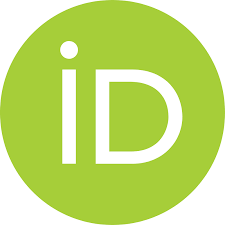Published in association
with the JALT CALL SIG
About this Journal
Information for Authors

Related Publications
Insights into Digital Literacy in Language Teaching
Online Language Teaching: Crises and Creativities
Insights into Teaching and Learning Writing
Insights into Autonomy and Technology in Language Teaching
Insights into Flipped Classrooms
Insights into Task-Based Language Teaching


This work is licensed under a Creative Commons Attribution 4.0 International License.

Learner engagement with corrective feedback using think-aloud protocols
Pedro Fernández-Michels  , Laia Canals Fornons
, Laia Canals Fornons 
– Online language learning environments where asynchronous communication is the main form of relation between learners and teachers require learners to use self-regulatory skills that help them control their learning process and compensate for the lack of interaction with their teachers (Fernández-Toro & Furnborough, 2014; Fernández-Toro & Hurd, 2014).
| Author(s) | |
|---|---|
| Paper type | Regular Articles |
| Pages | 203-232 |
| DOI | |
| Year |
Abstract
Online language learning environments where asynchronous communication is the main form of relation between learners and teachers require learners to use self-regulatory skills that help them control their learning process and compensate for the lack of interaction with their teachers (Fernández-Toro & Furnborough, 2014; Fernández-Toro & Hurd, 2014). In such context, feedback can constitute a driver of self-regulation, facilitating information about the learning process that can contribute to the development of self-regulatory skills (Yu, Jiang & Zhou, 2020). The present article aims to provide insights about how online learners of German as a foreign language engage with written corrective feedback and co-construct meaning (Nicol, 2010). The eleven participants received two different types of corrective feedback: direct explicit feedback on one written assignment and indirect feedback using metalinguistic information and error categorization on the other. Upon receiving the feedback information, the learners were asked to carry out two screen-recorded think-aloud protocols. This article reports on the data obtained through these protocols after conducting thematic analysis (Brown & Clarke, 2006). The results show how learners engaged with each feedback modality and reveal that the feedback revision generated expression of self-regulatory actions such as reflection on their performance, evaluation, and planning.
Suggested citation
Fernández-Michels, P., & Canals Fornons, L. (2021). Learner engagement with corrective feedback using think-aloud protocols. The JALT CALL Journal, 17(3), 203–232. https://doi.org/10.29140/jaltcall.v17n3.461






